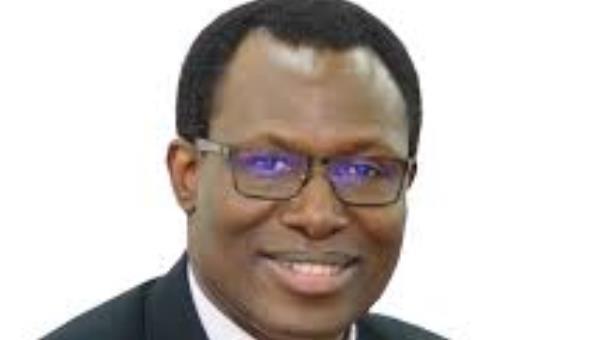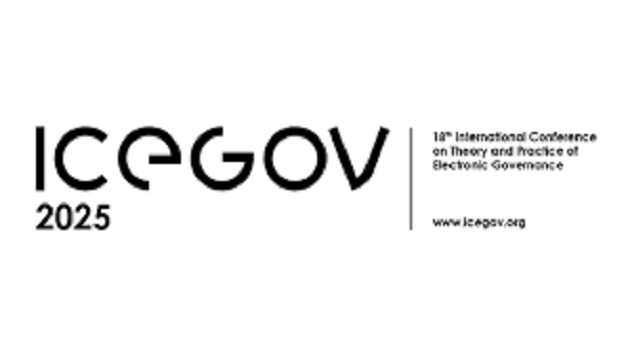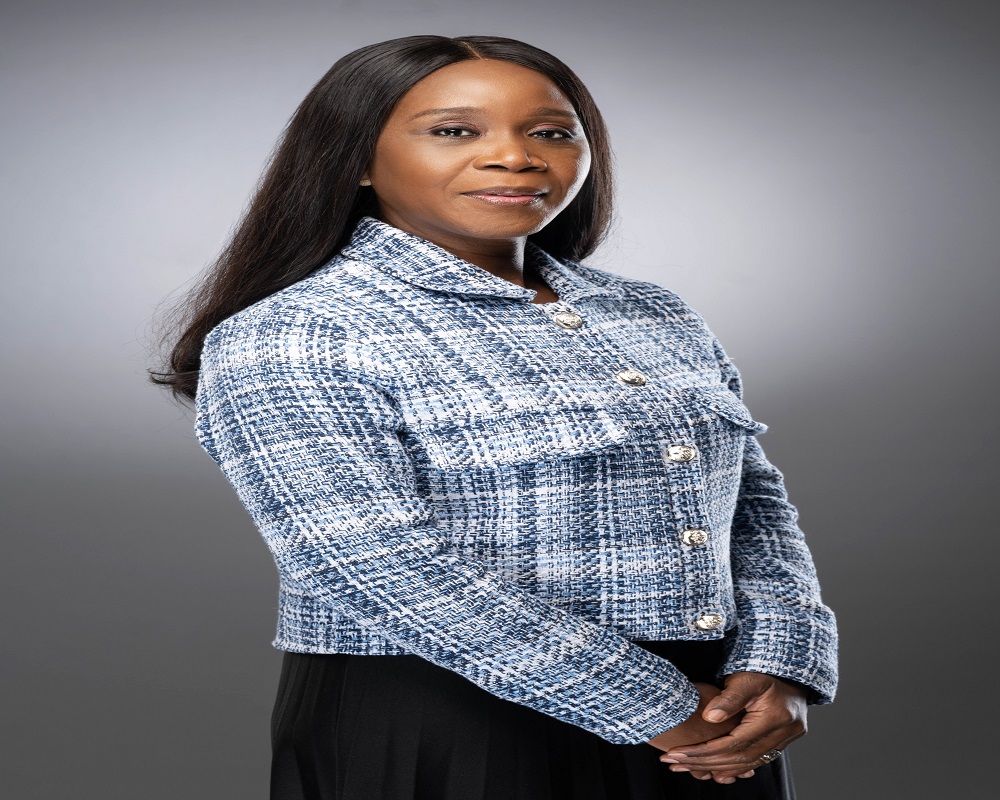General News
Defending the foundations for connectivity

By Engr. Gbenga Adebayo
In 2001, when the first GSM call was made in Nigeria how many of us would have envisaged the digital world that we live in today? The pace of growth and the rate of adoption of telecoms solutions in Nigeria has been revolutionary. It is a globally acknowledged case study that we should be proud of and a clear demonstration of what can be achieved.

Almost all of us today are reliant on the network connectivity that it has enabled in different shapes and forms. From the simple need to communicate with loved ones, to the digital platforms that enable our access to and consumption of entertainment, financial products and other critical services. Our reliance on these systems is becoming more and more acute, whether it is citizens, governments, or corporations. System downtime is increasingly disruptive and offline manual redundancies are often in the advanced stages of being phased out. The pace of this transition is not slowing down. With the core infrastructure in place, innovation is driving the exponential growth of services that ride on it. From the fully adopted social media that has changed the way we interact, to the emerging Artificial Intelligence (AI) revolution.
While this innovation is enabling exciting new possibilities, there is a tendency to focus on those opportunities, to the detriment of the core infrastructure on which it rides. It is imperative that we retain a focus on the optimisation of that infrastructure and enable continued investment in its development. We have seen how the transition from 2G, through to 3G, 4G and 5G have each enabled the development of more and more sophisticated solutions.
The continued development of core infrastructure has to be sustainable, and over the last few months we have begun to see the challenges that the operators that provide it are facing. Both MTN and Airtel have declared significant foreign exchange (FX) losses in Nigeria, and the stress is not linked to them alone. The entire ecosystem is battling with a range of challenges that must be addressed. If we fail to do so, the downstream impact on innovation will be severe. Telecoms infrastructure requires a base level of investment to maintain its current capabilities, and significant additional investment to expand and grow. It is capital intensive and that capital has to be generated through sustainable business models.
At the heart of the challenge the industry faces is the issue of rising costs. Recent financial losses are directly linked to the cost of operating towers that rely on inputs like diesel, which have increased significantly as the Naira has depreciated. The provisions large telecom companies have had to make, and the consequent losses and impact on their reserves is a red flag. It tells us that business as usual is not sustainable. If we continue as we are, then those companies will struggle to continue to invest in and maintain existing services.
But those costs are not the only challenge. General cost inflation, multiple taxation, regular and damaging vandalisation of infrastructure and the costs associated with regulatory compliance all help contribute to the high cost of operations. We cannot continue to follow a path that asks those companies to simply accept those rising costs. It is no longer sustainable, and we have reached an inflection point.
This is a critical moment for the industry. How we approach and resolve it will define the future of Nigeria’s digital economy. If you want to be able to enjoy the benefits that digitisation brings. If we want the infrastructure that enables AI and helps us drive growth, then we must take action now.
Cost-reflective tariffs, like it or not, are simply non-negotiable. We have seen the impact of price controls in other segments of the economy, like power. If providers cannot operate sustainable business models, then they stop investing. When that happens, the existing infrastructure starts to crumble. For power, a consumer can choose to take ownership of the solution by buying a generator, or a solar panel. For fuel, the government can step in as the provider of last resort and manage a subsidy regime that mitigates the impact on the population. Those options are not available in the telecoms sector. There is no self-help solution.
We fully understand and appreciate the financial stress that Nigerians are experiencing today. The cost of living is the single most significant factor in most people’s daily lives. But those people are still able to enjoy the benefits that connectivity brings, at the price they paid before these challenges became so acute. Imagine a future in which the gains of the last twenty years are reversed. Nigeria, and Nigerians simply cannot afford it. The pain that we would feel under those circumstances would be exponentially worse.
We need to find a long-term, sustainable and manageable solution to this problem. Prices will need to rise, but action needs to be taken in a measured way, through sustainable conversations and partnership with the government. It is time to address this head on.
Engr. Gbenga Adebayo is the Chairman, Association of Licensed Telecoms Operators of Nigeria (ALTON)
General News
Researchers Develop Innovative Treatment for Malaria

An international team of researchers have introduced a groundbreaking drug, known as the covalent kinase inhibitor, which shows promise in combating treatment-resistant malaria.

Developed by chemists and bioscientists from the University of Glasgow, this innovative drug could surpass current medications by effectively targeting and disabling the proteins used by the Plasmodium falciparum parasite to replicate within the human body.
This is according to a report titled “Targeting Pf CLK3 with Covalent Inhibitors: A Novel Strategy for Malaria Treatment.”
The development, led by chemists and bioscientists from the University of Glasgow, was outlined in a November publication in the “Journal of Medicinal Chemistry.”
According to the researchers, covalent inhibitors form bonds with proteins, usually irreversibly modifying them, and this new drug could be more effective than current medications at all stages of malaria infection.
The new drug works by permanently disabling a protein that Plasmodium falciparum, one of the mosquito-borne parasites that spread malaria, uses to replicate itself inside the human body.
The drug also has the potential to work as a single-dose treatment, a significant improvement over existing therapies.
This breakthrough marks the first adaptation of an approach from cancer treatments to tackle malaria.
The team expressed optimism that the parasite is unlikely to develop resistance to the new drug, which targets the protein Pf CLK3 and disrupts the parasite’s ability to splice RNA.
The researchers, including Prof. Martins Emeje from the Nigerian Natural Medicines Development Agency and Prof. Oyewale Tomori from the West African Academy of Sciences, emphasise the importance of regular calibration and accreditation for medical laboratories to ensure accurate results and reliable treatment.
General News
Nigeria to Host ICEGOV 2025, A Milestone in Digital Governance and Global Leadership

The Federal Ministry of Communications, Innovation & Digital Economy, Nigeria has been officially confirmed as the host country for the 2025 International Conference on Theory and Practice of Electronic Governance (ICEGOV) edition.

This confirmation by the United Nations University Operating Unit on Policy-Driven Electronic Governance (UNU-EGOV) marks a historic milestone in our nation’s digital transformation journey, showcasing Nigeria’s leadership in digital governance, innovation, and technological advancements on the global stage.
ICEGOV is a prestigious global conference that convenes governments, academia, international organisations, industry leaders, and civil society to exchange insights, research, and best practices in electronic governance.
Hosting this event presents a unique opportunity to strengthen Nigeria’s digital ecosystem, foster multidisciplinary collaborations, and drive policy innovations that will shape the future of governance in Africa and beyond.
Speaking on this momentous achievement, the Honourable Minister of Communications, Innovation & Digital Economy, Dr. ‘Bosun Tijani, stated: “Nigeria’s selection to host ICEGOV 2025 is a recognition of our efforts to drive digital transformation and innovation in governance.
“I am a firm believer in the importance of the academia and research in supporting global discussions on e-Governance and we have seen this in some of the input in government initiatives like the National AI Strategy and the National Digital Economy and e-Governance Bill which are laying the foundation for the growth of Nigeria’s Digital Economy.
“As we prepare to welcome you all to Nigeria, we look forward to very useful outcomes that will be beneficial for the growth of digital governance and policy development globally.”
General News
MTN Nigeria Foundation Supports Education with Donation of School Supplies to 1000+ Students

MTN Nigeria Foundation recently embarked on an initiative to donate support materials to nominated schools in seven states across the six geopolitical zones, including Edo, Oyo, Katsina, Nasarawa, Bauchi, Anambra and Enugu.

Odunayo Sanya, Executive Secretary, MTN Foundation
The donations form part of the foundation’s Learning Support Materials Initiative (LSMI) aimed at improving learning experiences for students nationwide.
The MTNF Learning Support Material Initiative (LSMI) is a program created to empower students with essential academic tools, enabling them to reach their highest academic capabilities. Over 1000 students received vital resources such as school bags and exercise books, with the schools also receiving additional equipment like umbrellas and Wi-Fi routers to aid the implementation of technology in learning.
The initiative forms part of MTN Foundation’s broader commitment to youth empowerment and educational development in Nigeria. Over the years, the foundation has invested in education through several initiatives. These include the MTN Scholarship Scheme for science and technology students and blind scholars at the undergraduate level. Additionally, MTN Foundation’s Science and Technology Lab Project (STLP) has resulted in the refurbishment of 102 science laboratories in public secondary schools across the country.
Speaking on the Learning Support Material Initiative (LSMI) and the Foundation’s dedication to national development through education, Executive Director, MTN Foundation, Odunayo Sanya said “At MTN Nigeria Foundation, we believe that education is the cornerstone of growth and development, and all students deserve access to the resources necessary to unlock their full potential.
“This initiative emphasizes our commitment to fostering an enabling environment for learning and supporting access to quality education.”
The impact of these donations was evident and appreciated by students who expressed that the learning materials would aid their learning process and educators who affirmed that they would be put to good use.
This initiative demonstrates how corporate entities can play pivotal roles in supporting societal needs while promoting sustainable development within the communities they serve.
The Learning Support Materials Initiative by MTN Foundation highlights its unwavering dedication towards empowering young minds across Nigeria. Through strategic educational support programs, the foundation contributes to bridging resource gaps faced by several public institutions and shaping brighter futures nationwide.

 E-Business3 days ago
E-Business3 days agoSchmidt, Ex Google Chief Says AI Risky in Terrorist Hands

 News3 days ago
News3 days agoFG Order MDAs to Close Commercial Banks’ Accounts, Enforce TSA Policy

 News2 days ago
News2 days agoTikTok Returns on Apple, Google US App Stores as Trump Delays Ban

 General News2 days ago
General News2 days agoResearchers Develop Innovative Treatment for Malaria

 Telecom2 days ago
Telecom2 days agoVisa Launches Report on Digital Payment Landscape in Nigeria, Shows Positive Outlook

 E-Financial2 days ago
E-Financial2 days agoAfrican Union Launches Credit Rating Agency to Promote Regional Economic Integration

 Broadcasting2 days ago
Broadcasting2 days agoFG Kickstarts Construction of Emerging Technologies Institute in Kano

 E-Financial3 days ago
E-Financial3 days agoNigeria Worst Hit by Crypto Currency Fraud
























